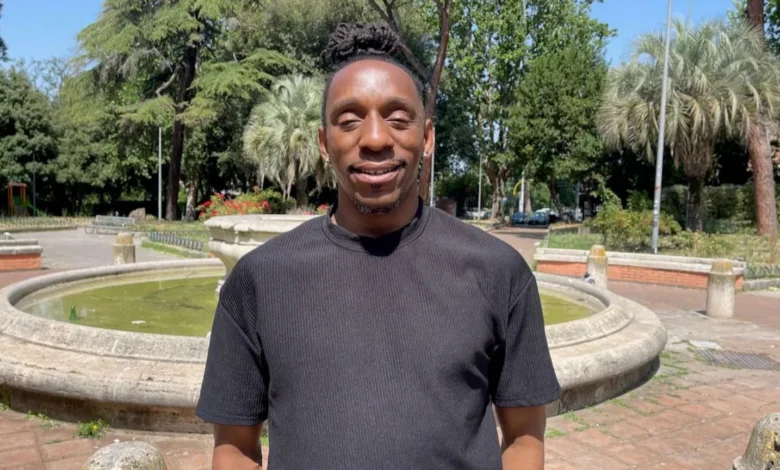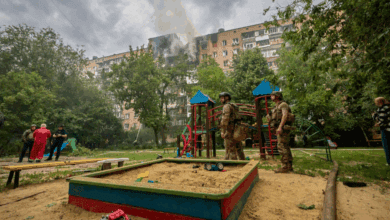Italian citizenship referendum polarises country


Sonny Olumati was born in Italy – but still has no citizenship at 39
Sonny Olumati was born in Rome and has lived in Italy all his life but the country he calls home does not recognise him as its own.
To Italy, Sonny is Nigerian, like his passport, and the 39-year-old is only welcome as long as his latest residence permit.
“I’ve been born here. I will live here. I will die here,” the dancer and activist tells me in what he calls “macaroni” Italian-English beneath the palm trees of a scruffy Roman park.
“But not having citizenship is like… being rejected from your country. And I don’t think this is a feeling we should have”.
That is why Sonny and others have been campaigning for a “Yes” vote in a national referendum on Sunday and Monday that proposes halving the time required to apply for Italian citizenship.
Cutting the wait from 10 years to five would bring this country in line with most others in Europe.
The referendum was initiated by a citizens’ initiative and is supported by civil society groups. But for such a referendum to be valid, 50% of all voters in Italy have to turn up.
Giorgia Meloni, the country’s hard-right prime minister, has announced she will boycott the vote, declaring the citizenship law already “excellent” and “very open”.
Other parties allied to her are calling on Italians to go to the beach instead of the polling station.
Sonny will not be taking part either. Without citizenship, he is not entitled to vote.
Insaf Dimassi says that “not being seen as a citizen is extremely painful and frustrating”
The question of who gets to be Italian is a sensitive one.
Large numbers of migrants and refugees arrive in the country each year helped across the Mediterranean from North Africa by smuggling gangs.
Meloni’s populist government has made a big deal about cutting the number of arrivals.
But this referendum is aimed at those who have travelled legally for work to a country with a rapidly shrinking and ageing population.
The aim is limited: to speed up the process for getting citizenship, not ease the strict criteria.
“Knowledge of the Italian language, not having criminal charges, continuous residence et cetera – all the various requirements remain the same,” explains Carla Taibi of the liberal party More Europe, one of several backers of the referendum.
The reform would affect long-term foreign residents already employed in Italy: from those on factory production lines in the north to those caring for pensioners in plush Rome neighbourhoods.
Their children aged under 18 would also be naturalised.
Up to 1.4 million people could qualify for citizenship immediately, with some estimates ranging higher.
“These people live in Italy, study and work and contribute. This is about changing the perception of them so they are not strangers anymore – but Italian,” argues Taibi.
The reform would also have practical implications.
As a non-Italian, Sonny cannot apply for a public sector job, and even struggled to get a driving licence.
When he was booked for hit reality TV show Fame Island last year, he ended up arriving two weeks late on set in Honduras because he had had so many problems getting the right paperwork.




